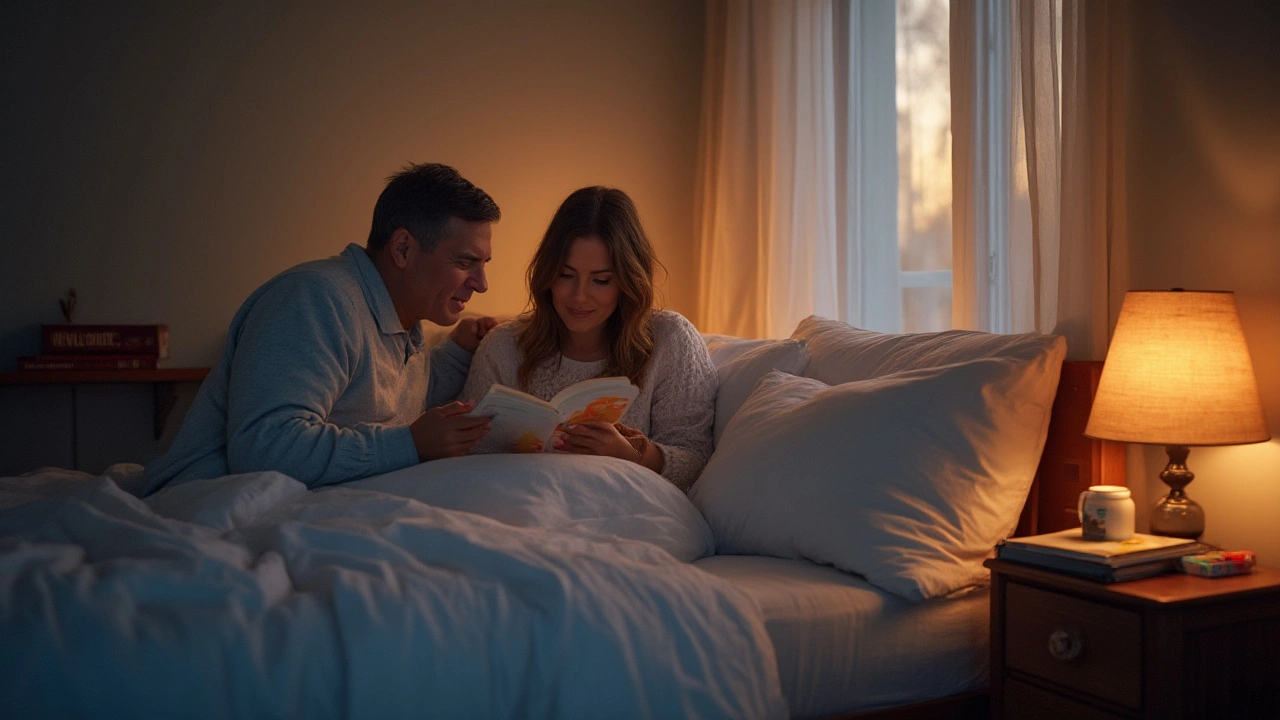Insomnia: Why It Happens and How to Fix It
Can't fall asleep or stay asleep? You’re not alone. Millions of people toss and turn every night, and most of them can turn things around with a few practical changes. In this guide we’ll look at the common reasons insomnia shows up, and give you straight‑forward steps you can try today to get better rest.
What’s Behind Your Sleepless Nights?
First, think about your daily routine. Stress from work, a busy mind, caffeine late in the day, or an inconsistent bedtime can all throw off your internal clock. Even the light in your bedroom matters; bright screens or streetlights signal your brain that it’s still daytime. Health issues like anxiety, depression, or pain also keep sleep at bay. Identifying the main driver helps you choose the right fix.
Quick Fixes You Can Start Tonight
Try a simple bedtime ritual: dim the lights an hour before sleep, turn off phones, and read a paper book or listen to calm music. Keep the room cool—about 65°F (18‑19°C) works for most people. If caffeine or alcohol is part of your evening, cut back or move them earlier. A short walk after dinner can lower stress, but avoid vigorous exercise right before bed.
When you lie down, practice the 4‑7‑8 breathing method: inhale for 4 seconds, hold for 7, exhale for 8. This slows your heart rate and tricks the brain into relaxing. If thoughts race, write them down on a notepad for later—getting them out of your head can stop the mental loop that keeps you awake.
Natural aids can also help. A cup of warm milk, chamomile tea, or a magnesium supplement taken an hour before bed are low‑risk options. Some people find that a small dose of melatonin (0.5‑3 mg) aligns their sleep‑wake cycle, especially if they travel across time zones.
If home tricks don’t work after a couple of weeks, talk to a doctor. Prescription options like short‑term sleep pills or cognitive‑behavioural therapy for insomnia (CBT‑I) have proven results. The key is not to rely on medication forever—use it as a bridge while you build healthier sleep habits.
Bottom line: insomnia is usually a mix of habits, environment, and sometimes health issues. By tweaking your routine, creating a soothing bedroom, and using safe natural aids, you give yourself the best chance at a solid night’s sleep. Give these steps a try, track what works, and you’ll likely see an improvement within days.
-
Statins and Sleep: How to Minimize Night-Time Side Effects for Better Rest
Discover smart tips and hands-on habits that help reduce sleep issues caused by statins. Plus: what tweaks to timing and lifestyle can make a real difference.
